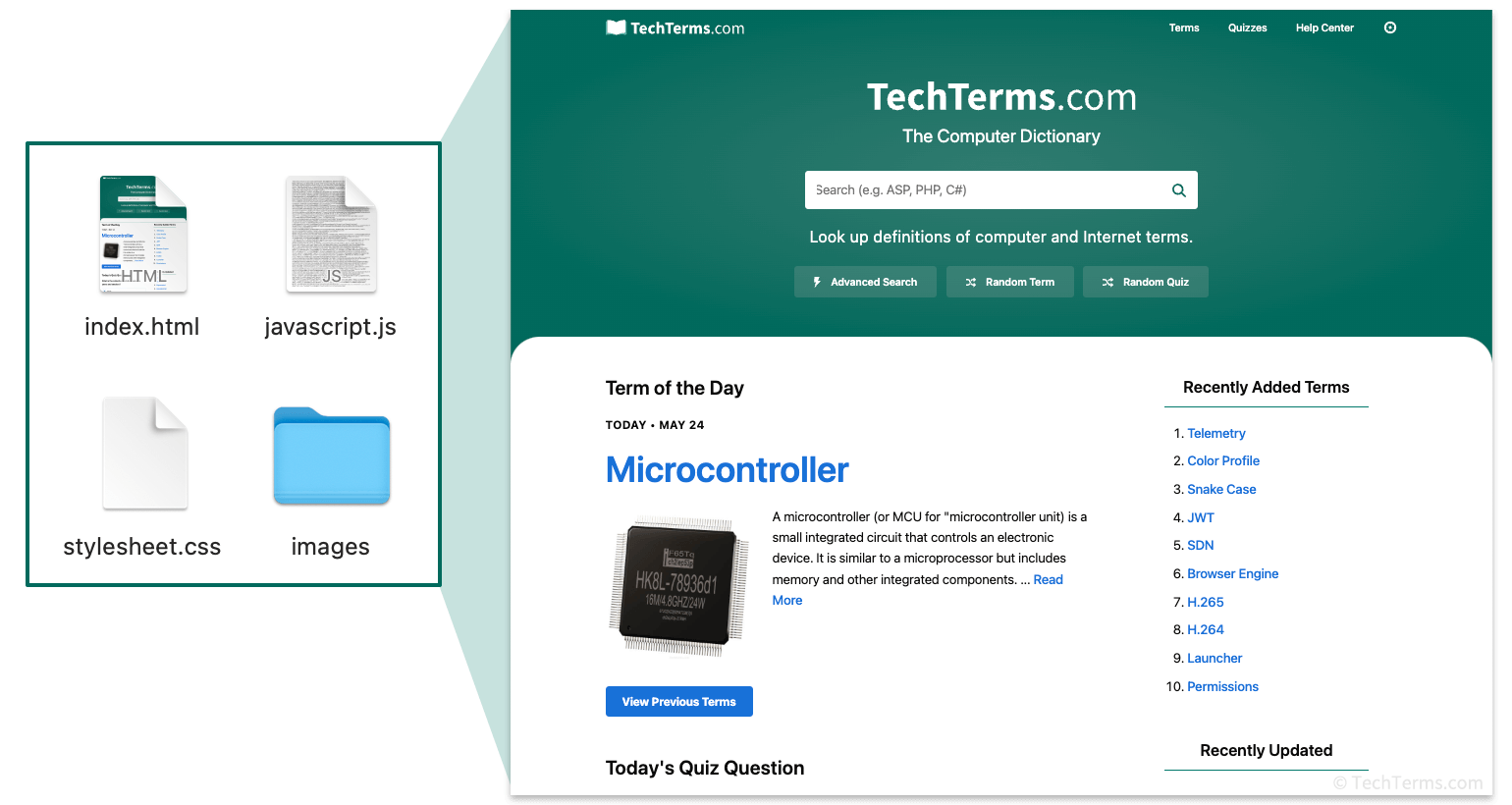Webpage
Webpages are the files that make up the World Wide Web. An individual webpage is a text document written in HTML (hypertext markup language). When a web browser displays a webpage, it translates the markup language into readable content. Webpages are hosted on a web server, and the collection of webpages hosted on the same domain name make up a website.
An individual webpage consists of several different elements. In addition to the HTML file itself, most webpages include a cascading style sheet (CSS) that controls how text, tables, and other elements are formatted. Style sheets may be embedded in the webpage's HTML file, or stored as a separate file on the web server. Images, video, and audio that appear on a webpage are also separate files on the web server, and are loaded with the webpage when you visit it.

A webpage can be either static or dynamic. Static pages show the same content each time they are viewed and are saved on the web server as HTML files. Dynamic pages are instead generated on demand whenever a browser requests them. These pages are typically written in scripting languages such as PHP, Perl, ASP, or JSP. The scripts in the pages run functions on the server and return the results of those functions, like displaying some information from a database. The server returns the requested information as HTML code, so when the page gets to your browser, it can translate and display the HTML.
 Test Your Knowledge
Test Your Knowledge